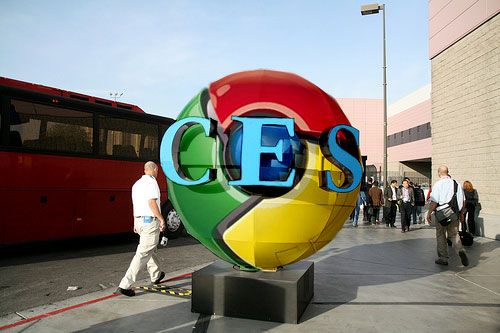
Lots of great gadgets (tablet PCs, 3D HDTVs equipped with downloadable apps, slick smartphones, etc.) and innovative concepts (love the Lenovo IdeaPad U1 hybrid laptop) have CES 2010 attendees riding giddy on a continuous high-tech sugar rush. But whereas last year’s show belonged to Palm, and 2007’s belonged to Apple, so too does Google appear to be the obvious talk of the town at this most recent event.

On the one hand, you’ve got gadgets like eReaders, which are increasingly tapping into Google’s massive digital collection of public domain books. On the other, tablets, slates and smartbooks as well as smartphones, streaming media extenders and HDTVs that either leverage its branded properties (i.e. YouTube), operating systems (see: Android, Chrome, etc.) or provide access to Google-owned services. Don’t forget: Google also makes its money primarily in the search market, of which it owns a 65% share of the market. So any device that pushes more users online, encourages them to spend longer on the Internet and takes them higher into the computing cloud ultimately works to the firm’s benefit.
Borrowing a page from Apple, which keeps tradeshow appearances few and far between, yet never fails to make a splash with its announcements, the lesson is simple: You don’t need a massive booth or flashy press conference to make your presence felt. All it takes is a little savvy networking, a suite of pioneering services and the wherewithal to cut partnership deals with practically every major player in the consumer electronics market to stay at the top of the tech world’s mind.
Editors' Recommendations
- Google is bringing Chrome browser to cars, even more EV features to Maps
- Google Pixel Fold might steal the show from the Pixel 6 and Pixel 6 Pro




